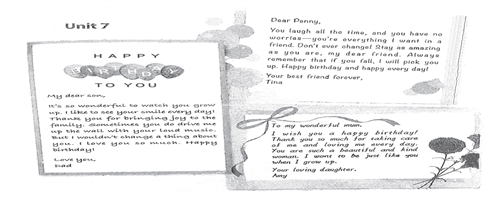Eastern Zhou Dynasty came into being in 770 B. C. , when King Ping of Zhou moved the capital eastward to Luoyi, and ended in 256 B.C., when conquered by the Qin, lasting 514 years under the reign of 25 kings.
周自公元前770年周平王东迁洛邑,到公元前256年被秦所灭,共传二十五王,前后经历了514年。
It is traditionally to be divided into two phases : the Spring and Autumn Period and the Warring States Period. The Spring and Autumn Period was from about 770 to 476 B. C. The name for this period derives from the Spring and Autumn Annals , a history record of the state Lu (a fiefdoms of the Zhou Dynasty) adapted by Confucius. The second half, the Warring States Period, began in 475 B. C. and stretched down to 221B.C..
我国习惯上把这段历史分为两个时期,公元前770年至前476年,为春秋时期,因孔子改编的鲁史《春秋》而得名;另一半,从 韩、赵、魏“三家分晋”(公元前475年)至秦始皇统一六国(公元前221年),为战国时期。
The Spring and Autumn period was not only a changing period, but the interim as well, during which the social economy experienced rapid transformation, the political situation became complicated, warfares emerged endlessly, academic study and culture were extraordinarily splendid, and the ancient Chinese civilization was evolving to the middle age.
春秋时期,是中国历史上社会经济急剧变化、政治局面错综复杂、军事斗争层出不穷、学术文化异彩纷呈的一个变革时期,是中华古代文明逐渐发展为中世纪文渡时期。
Internal power struggles and invasions of Rong tribe forced King Ping to abandon Haojing and with the help of such states as Jin and Zheng moved to Luoyi in 771 B.C.
在内乱和戎族入侵的交织打击之下,公元前770年,周平王被迫放弃镐京,依仗晋、郑等诸侯的力量迁都洛邑。
Hence, relying on the support from some powerful vassals both in politics and in economy, the imperial court began to decline, and times when Zhou king controlled the country had gone forever.
从此王室开始衰弱,在政治上和经济上都依靠一些比较强大的诸侯的支持,周天子号令天下的时代一去不复返。
In 707 B. C.,King Huan launched a puni-five expedition against the unruly state of Zheng, he was not only defeated, but also wounded by an arrow.
公元前707年,桓王出兵伐桀骜不驯的郑国,不仅为郑师所败,还被射伤。
Hereon,the king of Zhou existed in name only.
从此,周天子名存实亡。
According to history records, there were 128 vassal states during the Spring and Autumn Period, while the important ones were ten or more.
春秋时期,见于史书的诸侯国名有128个,但比较重要的不过十几个。
Resorting on the military strength, they launched wars constantly, annexing small states, expanding the domain, and a situation of vassals contending for hegemony came into being.
这些比较大的诸侯国凭借其实力,不断发动战争兼并小国,扩充领土,形成了诸侯争霸的局面。
The Five Hegemons are also called the Five Counts. There are different versions about their identities. The traditional definition is that Duke of Huan of Qi, Duke Wen of Jin, Duke Wu of Qin, Duke Xiang of Song, and King Zhuang of Chu ; the other is Duke Huan of Qi, Duke Wen of Jin, King Zhuang of Chu, King Helu of Wu and King Goujian of Yue.
春秋时期的“五霸”,历史上有不同的说法:一说是指齐桓公、宋襄公、晋文公、 秦穆公和楚庄王;另一说是指齐桓公、晋文公、楚庄王、吴王阖闾和越王勾践。
Duke Huan of Qi (in the throne from 685 B.C.-643 B.C.) was the first over-lord.
最早称霸的是齐桓公(公元前685 ~公元前643在位)。
In the east, the state of Qi had rich natural resources. Kings through the ages were engaged in the rectification of politics and the development of economy, so its national strength grew gradually.
齐国在东方,自然资源丰富,历代君主致力于整顿政治,发展生产,国力逐渐发展起来。
When he was in the throne, he designated a statesman named Guan Zhong as his prime minister to carry out reforms, and Qi became powerful rapidly.
齐桓公继位后,以管仲为相,改革内政,使齐国迅速强大。
Duke Huan of Qi succeeded in uniting the vassal lords by invoking the slogan of “loyalty to the King of Zhou”,defeated Northern Rong tribe and deterred invasions of Di tribe, due to which he was widely supported by vassals and his prestige rose greatly.
后以“尊王攘夷”为名,联合个诸侯国打败了北戎,制止了狄人的侵扰。齐桓公救患扶危的行为,得到一些诸侯的拥护,威信大增。
In 656 B.C. , Duke Huan led an alliance of eight vassal states to attack Chu, and finally concluded a covenant at Zhaoling (the present-day Yancheng in Henan). Qi,s supremacy reached its apex.
公元前656年,齐桓公带领8个诸侯国的联军攻楚,订立了召陵(今河南偃城)之盟,其霸业发展到顶峰。
In 651 B. C., Qi organized a meeting at Kuiqiu (now Northeast of Minquan County in Henan) with the participation of the monarchs of Lu, Song, Wei, Zheng, Xu and Cao participating in. Even the Zhou King sent his representative.
公元前651年,齐桓公在葵丘(今河南民权县东 北)大会诸侯,参加会盟的有齐、鲁、宋、卫、郑、许、曹等国的国君,周天子也派代表参加。这次会盟史称“葵丘之会”。
The meeting decided that states creating a friendly alliance should never attack each other, and that they had to assist each other if one partner should be attacked by an enemy.
葵丘之会规定各国和睦相处,互不侵犯。任何成员国受到外敌攻击,其他各国均应救援。
Duke Huan thus became the hegemon of the alliance, namely the overlord, and controlled the king of Zhou, acting as the highest judicial person.
齐桓公为盟主,就是霸主,得以挟天子以令诸侯。
When Duke Huan died,the intense contention for succession occurred and the power of Qi was weakened.
齐桓公死后,齐国出现争夺君权的内乱,力量削弱。
Chu took this opportunity to enhance its force, devastating several small states in the north successively, and then directing the spearhead at the central plain again.
楚国乘机发展势力,先后灭了楚国北边的几个小国,重新把矛头指向中原。
Figuring for the position of overlord, Duke Xiang of Song had a contest with Chu.
宋襄公为谋取霸主地位,展开了与楚国的较量。
The two armies met at Hongshui in 638 B. C. Conseuently, Song was defeated, and Duke Xiang was wounded, and died.
公元前638年,两军在泓水相遇,宋军大败,宋襄公受了箭伤,不久便死去了。
The state of Song lost its last chance to rise to political and military significance.
宋就此失去了在经济、军事上称雄的机会。
As Chu was ruling the central plain, Jin in the west was rising up quietly.
正当楚国称雄中原的时候,西部的晋国悄然兴起。
Duke Wen of Jin ascended to the enthronement after 19 years of hard exile.
晋文公重耳在外流亡19年后继位。
Duke Wen of Jin carried out political reform, and strengthened the national economy and thus he gained high prestige among lords.
他改革政治,发展经济,在诸侯中威信很高。
In 635 B. C. ,the King Xiang of Zhou escaped from inner disturbances to Zheng.
公元前635年,周襄王为了避内乱逃到了郑国。
Duke Wen of Jin saw his chance. Raising the banner of “ loyalty to the king of Zhou”,and allying other lords, he conquered Wang Zidai, rescued the king and accompanied him back to the royal domain, highly rewarded by the King.
晋文公以为是取威定霸的好机会,便打着“尊王”的旗号,打垮王子带,把襄王送回王都。
The next step for the Duke should be to challenge the power of Chu.
接下来,晋文公就要与楚国一决雌雄。
In 633 B. C. , the state of Chu led an alliance with Chen, Cai, Zheng and Xu, and then attacked Song.
公元前633年, 楚与陈、蔡、郑、许结盟,攻打宋国都城。
In response, Jin led the force of Song, Qi and Qin to rescue Song, and crashed the alliance of Chu at the battle of Chengpu (Linpuji in the Southwest of modern Juancheng in Shandong).
次年初,晋文公率齐秦联军兵救宋,在城襥 (现山东鄄城西南临濮集)大败楚军。
Duke Wen of Jin established a new friendly alliance during the meeting at Jiantu (Southwest of present Yuanyang County, Henan) and became the new overlord.
战后,晋文公在践土(河南原阳县西南)会盟诸侯,成为中原霸主。
However, the contention between Jin and Chu for supremacy lasted for many years.
然而,楚晋之争并未就此结束,战争延续多年。
Qin used to be a small country in the west of modern Shaanxi.
秦国原是活动在陕西西部的一个小国。
During the reign of Duke Mu, Bai Lixi was appointed as Dafu (a high official), rectifying civil affairs and encouraging production, therefore, the state was gradually rich and strong, its territory was expanded eastward, and bordered with the state of Jin.
秦穆公时,任用百里奚为大夫,整顿内政,奖励生产,国家逐渐富强,疆土向东扩展,与晋国相接。
Qin launched a war against Jin in 645 B. C.-, not only defeated Jin utterly at the battle of Hanyuan (the modern Ruicheng in Shanxi), and captured Duke Hui of Jin as well.
公元前645年,秦伐晋,大破晋军于韩原(今山西芮城),生俘晋惠公。
In 627 B.C. , Duke Mu launched a surprise attack on Zheng, but was intercepted at Xiao (in the northwest of modern Luoning in Henan) by Jin; all his three generals were captured, and the whole army was annihilated.
公元前627年,秦又袭郑,在回军至殽(今河南洛宁西北)时,遭晋军截击,秦军的三个将军被俘,全军覆没。史称“殽之战”。
From then on,the military confrontation between Qin and Jin went on constantly, and each side had victories and losses.
此后,秦、晋屡有战争,互有胜负。
Since Jin blocked the gate for Qin to the Central Plain and Qin could but expand its territory to the west. After annexing some Rong Di tribes, Qin began to dominate the area of Western Rong.
秦国为晋所阻,不得向东发展,转而向西,吞并了一些戎狄部族,称霸西戎。
Chu was a barbarian state in the basins of Jiang and Han.
楚是江、汉流域的一个蛮族国家。
During the reign of King Zhuang of Chu, Sun Shuao was designated as prime minister. With his help, the internal affairs were regulated, irrigation system was constructed, and the state became powerful and prosperous.
楚庄王时,孙叔敖为宰相,整饬内政,兴修水利,国势更加强盛。
In 606 B. C. King Zhuang headed troops arriving at the outskirts of Luoyi, and King Ding of Zhou was forced to hold ritual of consolation for him.
公元前606年,楚庄王率军至雒邑的郊外,周定王被迫派人为他举行慰劳欢迎之礼。
In 598B. C. King Zhuang besieged the state of Zheng, and Jin sent army to rescue it.
公元前598年,楚围郑,晋救郑。
Then at the battle of Bi (in the east of modern Zhengzhou in Henan) the army of the former hegemonial state of Jin was defeated.
次年,晋、楚军战于郷(今河南郑州市东),晋军大败。史称“郧之战”。
In 594 B. C. ,Chu defeated the state of Song and obtained the hegemonship over the Central Plain.
公元前594年,楚又败宋,楚庄王成为中原的霸主。
When the contention in the central plain came to an end, states Wu and Yue in the lower reaches of the Yangtze River rose to prominence.
当中原诸侯争霸接近尾声时,地处长江下游的吴、越发展起来。
In 506 B. C. , appointed Wu Zixu as general, King Helu of Wu launched an punitive expedition a-gainst Chu, and captured the capital of Chu, Ying.
周敬王十四年 (公元前506),吴王阖闾以伍员(伍子胥)为大将,统兵伐楚,攻进楚都。
In 496 B. C. , King of the Wu state commanded the army to march south and attack the state of Yue.
周敬王二十四年(公元前496)又挥师南进伐越。
King Gou-jian of Yue led the army to fight back and King Helu suffered an injury which led to his death.
越王勾践率兵迎战,越大夫灵姑浮一戈击中阖闾,阖闾因伤逝世。
In 494 B. C. , King Fuchai of the Wu state, the son of Helu, attacked Yue to seek revenge. Yue was defeated. King Goujian sued for peace, sending jewels and Xishi (a great beauty in Chinese history) to the Wu king, and leading the horse for Fuchai himself.
周敬王二十六年(公元前494),吴王夫差为父报仇,兴兵败越,越王勾践求和,送给吴王珍宝美女西施,自己亲自为夫差牵马。
Degrading himself as a Wu subject, Goujian prepared to restore his state.
勾践自贱为吴民,志在复国。
Exploiting the victory, King Wu launched an attack northward and defeated Qi, attempting to seize hegemony.
吴王乘胜向北进击,大败齐军,成为小霸。
After ten years of sleeping on brushwood and tasting gall, Goujian finally annihilated Wu. Ashamed and resentful, Fuchai committed suicide.
越王勾践卧薪尝胆,十年生聚,十年生息,终于在周元王三年(公元前473)消 灭吴国,夫差羞愤自杀。
Goujian went to the north to confer with Qi and Jin at Xu, and became the last hegemon.
勾践北上与齐晋会盟于徐,成为最后一个霸主。





 。
。